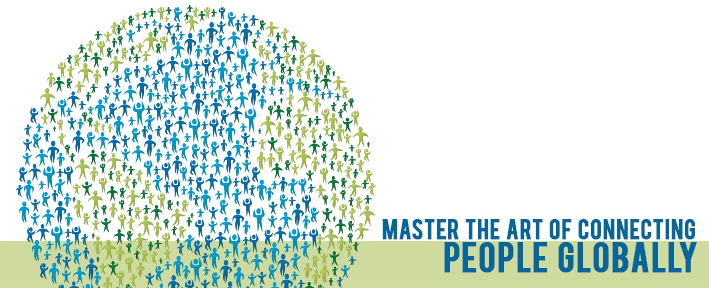
Advice & Blog

Master the art of connecting people globally
Posted on August 12, 2015
Clever communication, values with flex and strong leadership strategies. IIP International practitioner Hilary Kennedy traces the HR trends which are helping global businesses to become better connected and more successful than ever before.
In its 2014 report on ‘Local and Global Human Capital Trends’, IIP Gold accredited organisation Deloitte declared that ‘the world is much more global and interdependent’.
Indeed, interdependent worldwide business thinking has become hugely important for organisations in recent years, but it’s not without its challenges, particularly when it comes to a business’ people. Distance and logistics, multiple languages, different cultures, employee and customer expectations, different economies and political environments can all have an impact on an organisation’s effectiveness.
With so much to contend with, building a watertight and effective global people strategy is essential for success. Around the world, trends are emerging as the very best multinationals maximise their performance through their people. These include:

At the heart of a high performing organisation is its values. These need to ‘work’ in every country and people at every level will often have been involved in creating and bringing these to life. The values reflect the type of organisation and the style in which it wants to operate, but they also have enough flex in them to be applicable in different markets. In fact, done properly, they become something that drive the organisation and affect everything it does.

Hand in hand with values, leaders’ behaviour often determines much of what follows. Leaders in these global organisations are particularly challenged to demonstrate role model behaviour if they are not physically present and visible on a day-to-day basis. In these cases, communication and support for action, investment and enabling initiatives become critical. Style, tone, clarity, methodology, reach, transparency, language and frequency are aspects of leadership communication that people often say make a difference and have a huge influence over employees’ motivation, trust and loyalty.

It’s an area successful global organisations invest in heavily, through research, training and technology. With huge focus on training leaders, international company P&G understand the importance of building a culture of leaders with global communication at their core; “We systemically build multiple generations of leaders by developing them throughout their careers with varying experiences across businesses and geographies.” Says CEO Bob McDonald, “This has created a very strong pipeline of globally capable and mobile leaders.”

If you’re trying to create a sense of unity through departments on a global scale, strategies that engage people and create connections, such as social and community projects, global development programmes, and mobility opportunities, can forge more of a cohesive workplace culture across your organisation.
PwC and other similar global organisations have worldwide programmes in place that enable people to meet in different locations, to share thinking and approaches. This helps teams to appreciate differences and to learn ‘same’ behaviours, skills and applications, while using the same language.

In global organisations, central controls are important and somewhat inevitable, but they don't have to be seen as damaging. Some of the most successful companies make these a positive thing by taking input from all levels and areas of the business and investing in global initiatives. These often achieve far greater impact than any single unit could. Simply put, the global units drive and the centre coordinates and enables them. Global organisations such as IIP accredited Geodis Wilson, TNT Express, KPMG, JTI and Swissotels have global people surveys that gather information regularly from their employees. These are extremely important, as they’re often used as a serious driver for change.
Whether you’re an organisation which does the same thing in different markets, or you have a more complex structure with different functions and components – sales offices, distribution centres, factories – worldwide, success with this approach still hinges on the same thing – local flexibility.
It’s about applying the global tools but adding a local flavour, so managers have the resources, expertise and autonomy to achieve the same outcomes and employees retain their sense of local identity. In the very best businesses, managers can explain and quantify what benefits those people strategies bring to the local business and workforce.



